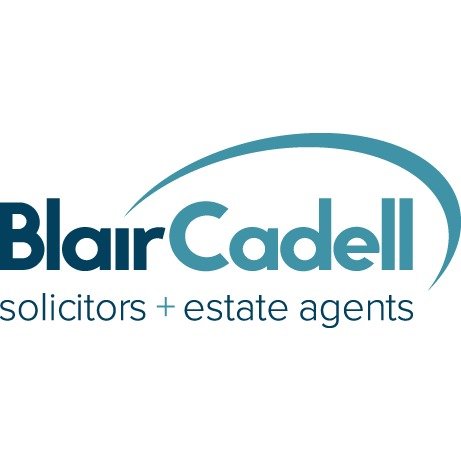Best Conveyancing Lawyers in Edinburgh
Share your needs with us, get contacted by law firms.
Free. Takes 2 min.
Free Guide to Hiring a Real Estate Lawyer
List of the best lawyers in Edinburgh, United Kingdom
About Conveyancing Law in Edinburgh, United Kingdom
Conveyancing is the legal process of transferring ownership of property from one person to another. In Edinburgh, United Kingdom, conveyancing involves a series of detailed legal steps to ensure that the transaction is lawful, the property is correctly described, and all financial obligations are met. The process protects buyers and sellers by addressing issues such as title, ownership, and any charges affecting the property. Scottish conveyancing law has its own unique aspects compared to the rest of the UK, which makes it important to seek specialist advice when buying or selling property in Edinburgh.
Why You May Need a Lawyer
Engaging a solicitor for conveyancing in Edinburgh is highly recommended due to the complexity of the legal process. Common situations where people require legal help include:
- Buying your first home or a new property
- Selling residential or commercial property
- Transferring ownership as part of inheritance or divorce
- Re-mortgaging your property
- Dealing with disputes over boundary lines or title
- Managing sales or purchases involving shared ownership or common areas
- Negotiating missives and ensuring the enforceability of contracts
Legal professionals help to avoid costly mistakes, handle complex paperwork, and provide peace of mind by ensuring all legal obligations are fulfilled.
Local Laws Overview
Conveyancing in Edinburgh is governed by Scots Law, which has its own distinct procedures and terminology. Key aspects to be aware of include:
- The conveyancing process is usually handled by a Scottish solicitor with experience in property law.
- The process involves negotiation and conclusion of missives, the legal letters exchanged between parties that form the contract.
- Once missives are concluded, the agreement becomes legally binding with limited grounds for withdrawal.
- Land and property ownership is publicly recorded in the Registers of Scotland.
- Local property searches are carried out to check for planning permissions, title defects, and rights of way.
- LBTT (Land and Buildings Transaction Tax) replaces Stamp Duty in Scotland and is payable on most property purchases above a certain value.
- There are strict requirements for settling payment, delivering title deeds, and registering new ownership.
These regulations aim to ensure clarity of ownership and protect the interests of both buyers and sellers.
Frequently Asked Questions
What is the role of a solicitor in conveyancing?
A solicitor manages the legal aspects of the property transaction, communicates with the other party's solicitor, carries out necessary searches, drafts and checks documents, and ensures the transfer of funds and registration of the new ownership.
How long does the conveyancing process take in Edinburgh?
On average, the process can take six to eight weeks, although timescales may vary depending on the complexity of the transaction and any issues uncovered during searches.
What are missives?
Missives are formal letters exchanged between solicitors for the buyer and seller. When all conditions are agreed and accepted, the missives form a binding contract.
What searches are done by the solicitor?
Your solicitor will carry out property and title searches, ensure no debts or legal restrictions are attached to the property, and check for planning permissions and environmental issues.
Is a survey required when buying a property in Edinburgh?
Yes, sellers must provide a Home Report, which includes a property survey, an energy report, and a property questionnaire. Buyers may also choose to commission their own survey.
What is Land and Buildings Transaction Tax (LBTT)?
LBTT is a property tax paid when buying property in Scotland, calculated based on the purchase price. Your solicitor will advise you on the applicable rates and help arrange payment.
When do I get the keys to the property?
Keys are usually handed over on the date of entry, which is agreed during the conveyancing process and after funds have been transferred and registration completed.
Can the buyer or seller withdraw after missives have concluded?
Once the missives are concluded, the contract is legally binding. Withdrawal is only possible under very limited circumstances, often involving penalties.
What happens on the date of settlement?
On the settlement date, the buyer's solicitor transfers the purchase funds, the seller's solicitor delivers the signed title deed, and ownership is registered in the buyer's name.
What are common issues that can hold up conveyancing?
Delays may be caused by unresolved title issues, slow responses from involved parties, late mortgage approvals, or problems found during searches or surveys.
Additional Resources
For further information or assistance with conveyancing in Edinburgh, the following resources may be helpful:
- Registers of Scotland - Maintains records of property ownership and title information
- The Law Society of Scotland - Professional body for Scottish solicitors with resources for finding a solicitor
- Revenue Scotland - Responsible for the collection of LBTT
- Scottish Legal Aid Board - Offers guidance for those eligible for legal aid
- Citizens Advice Scotland - Provides free, confidential, and impartial advice on legal matters
- Edinburgh City Council - For local planning and property issues
Next Steps
If you require legal assistance with conveyancing in Edinburgh, it's best to consult a solicitor with experience in Scottish property law. Start by gathering information about the property, your financial position, and any specific concerns. Contact a recommended local law firm or use resources provided by the Law Society of Scotland to find a qualified conveyancing solicitor. Arrange an initial consultation to discuss your needs and the likely costs involved. Throughout the process, remain proactive in communicating with your solicitor and ensure you understand each step before proceeding. This approach will help ensure a smooth and legally sound property transaction.
Lawzana helps you find the best lawyers and law firms in Edinburgh through a curated and pre-screened list of qualified legal professionals. Our platform offers rankings and detailed profiles of attorneys and law firms, allowing you to compare based on practice areas, including Conveyancing, experience, and client feedback.
Each profile includes a description of the firm's areas of practice, client reviews, team members and partners, year of establishment, spoken languages, office locations, contact information, social media presence, and any published articles or resources. Most firms on our platform speak English and are experienced in both local and international legal matters.
Get a quote from top-rated law firms in Edinburgh, United Kingdom — quickly, securely, and without unnecessary hassle.
Disclaimer:
The information provided on this page is for general informational purposes only and does not constitute legal advice. While we strive to ensure the accuracy and relevance of the content, legal information may change over time, and interpretations of the law can vary. You should always consult with a qualified legal professional for advice specific to your situation.
We disclaim all liability for actions taken or not taken based on the content of this page. If you believe any information is incorrect or outdated, please contact us, and we will review and update it where appropriate.










